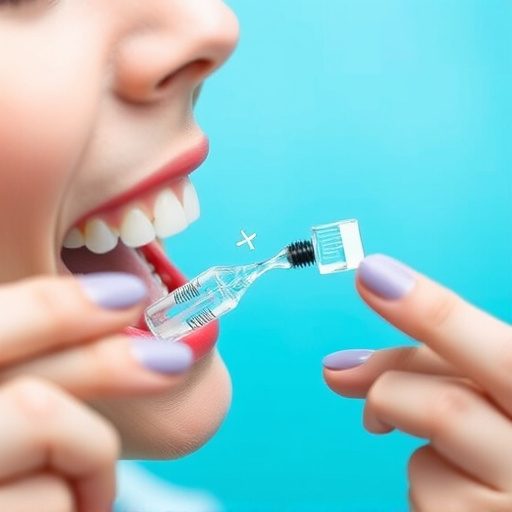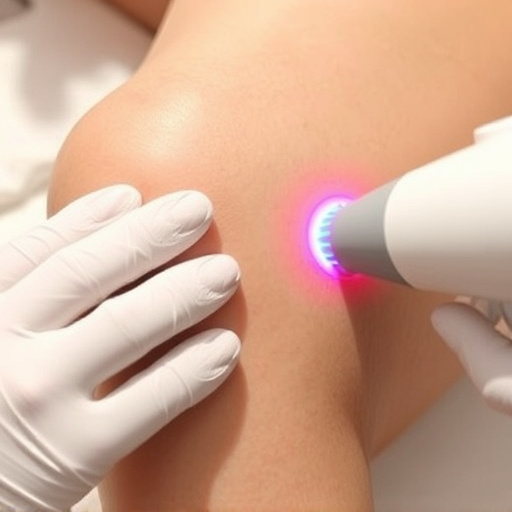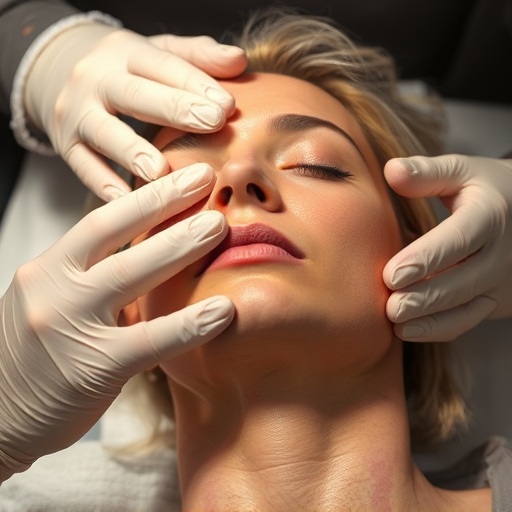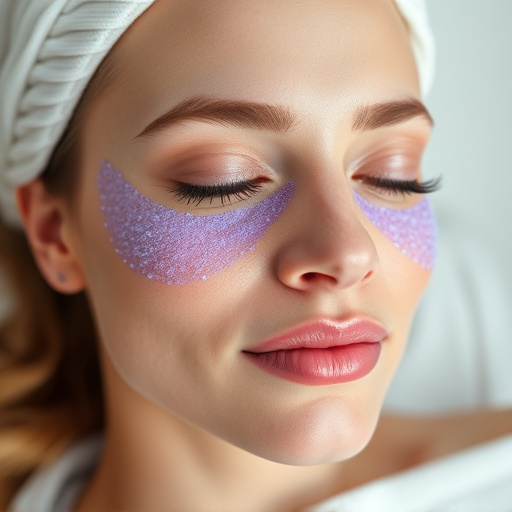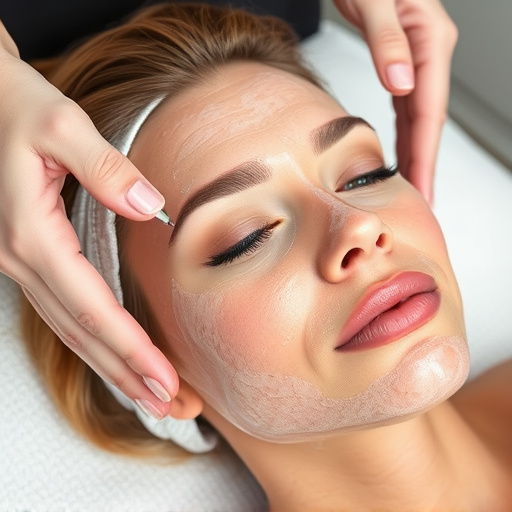Acne-prone skin requires a multi-faceted approach advised by dermatologists, including using specific ingredients like benzoyl peroxide and salicylic acid, along with treatments like facials and microdermabrasion. Lifestyle changes such as sleep, diet, hydration, exercise, stress management, sun protection, and procedures like microneedling are also recommended for healthier, clearer skin.
Acne-prone skin can be a constant source of frustration, but understanding your skin’s needs is the first step towards achieving clear, healthy complexions. This article delves into the best dermatologist-recommended ingredients and lifestyle adjustments for managing acne effectively. From identifying common triggers to exploring powerful topical treatments, you’ll discover evidence-based strategies to calm inflammation, reduce breakouts, and promote clearer skin.
- Understanding Acne-Prone Skin: Common Triggers and Causes
- Topical Treatments: Dermatologist-Approved Ingredients
- Lifestyle Adjustments for Clearer, Healthy Skin
Understanding Acne-Prone Skin: Common Triggers and Causes
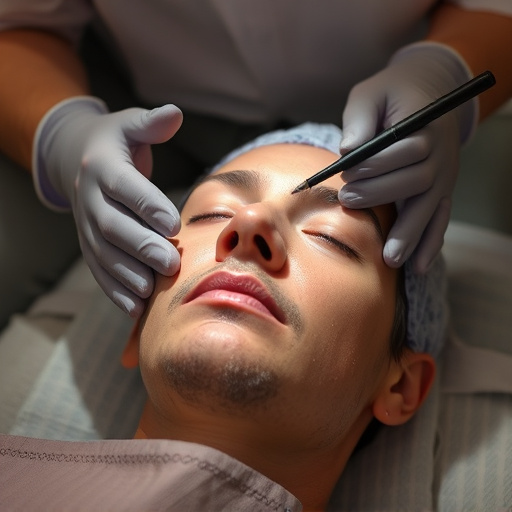
Acne-prone skin is a common concern, often characterized by frequent breakouts and blemishes. Understanding what triggers this condition is key to managing it effectively. While it can be influenced by hormonal changes, genetics plays a significant role in determining an individual’s susceptibility to acne. Environmental factors such as stress, pollution, and even certain types of makeup can also contribute to its development.
Dermatologists recommend a multifaceted approach to treating and preventing acne. This includes keeping the skin clean and well-hydrated, using non-comedogenic products to prevent clogging pores, and incorporating specific ingredients known for their anti-inflammatory and antibacterial properties. Common active ingredients like salicylic acid, benzoyl peroxide, and retinoids are often prescribed in facial treatments for their ability to unclog pores, reduce redness, and minimize scarring, catering specifically to the needs of acne-prone skin.
Topical Treatments: Dermatologist-Approved Ingredients
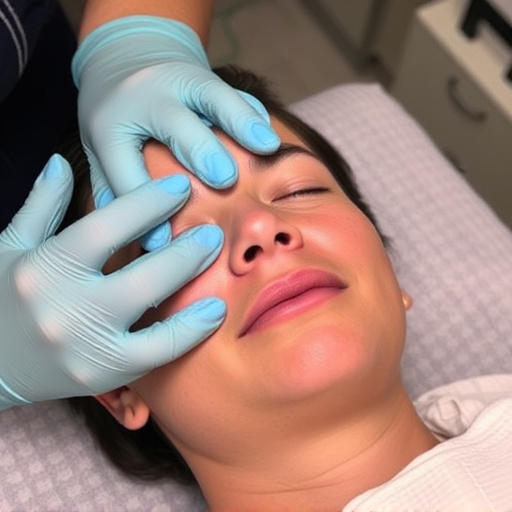
Dermatologists are the experts when it comes to understanding and treating skin conditions, especially acne. They often recommend specific ingredients that have been clinically proven to be effective in combating acne-prone skin. When it comes to topical treatments, certain key players stand out as dermatologist favorites. These include benzoyl peroxide, salicylic acid, and azelaic acid, which are all known for their powerful anti-inflammatory and antibacterial properties.
A regular part of many dermatologist-approved routines is customized facials, which can deeply cleanse the skin, exfoliate away dead cells, and even promote skin tightening. Non-surgical treatments such as chemical peels and microdermabrasion also fall under this category, offering a more intensive approach to unclogged pores and a smoother complexion.
Lifestyle Adjustments for Clearer, Healthy Skin
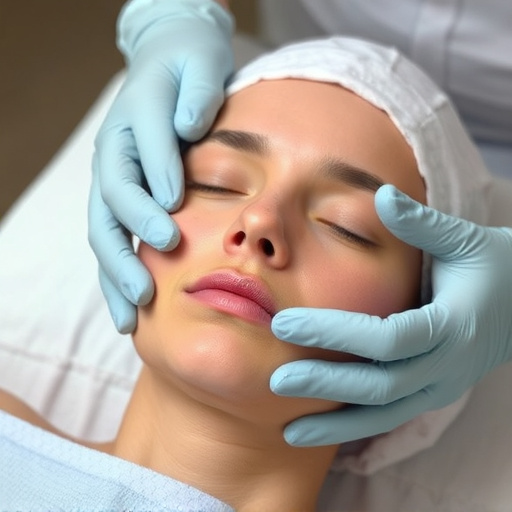
For clearer and healthier skin, embracing lifestyle adjustments recommended by dermatologists is crucial. Beyond choosing the right products, incorporating beneficial habits into your daily routine can significantly impact your skin’s condition. Adequate sleep is essential; it allows your skin to repair and regenerate during the night. A balanced diet rich in fruits, vegetables, whole grains, and lean proteins provides the necessary nutrients for skin health. Staying hydrated by drinking enough water also contributes to maintaining skin’s elasticity and reducing breakouts.
Additionally, regular exercise boosts blood circulation, which helps deliver oxygen and essential nutrients to the skin. Managing stress through practices like meditation or yoga can prevent hormonal fluctuations that trigger acne. Avoiding excessive sun exposure and using sunscreen are vital steps in preventing damage and premature aging. Combining these lifestyle changes with professional skincare treatments, such as microneedling therapy or pore refinement procedures, can offer comprehensive solutions for managing and improving acne-prone skin.
Acne-prone skin requires a multi-faceted approach, combining effective topical treatments with thoughtful lifestyle adjustments. By understanding your skin’s unique needs and incorporating trusted, dermatologist-recommended ingredients into your routine, you can achieve clearer, healthier skin. Remember, consistency is key; be patient as your skin responds to these changes. With the right care, you can bid farewell to acne and embrace a confident, clear complexion.

